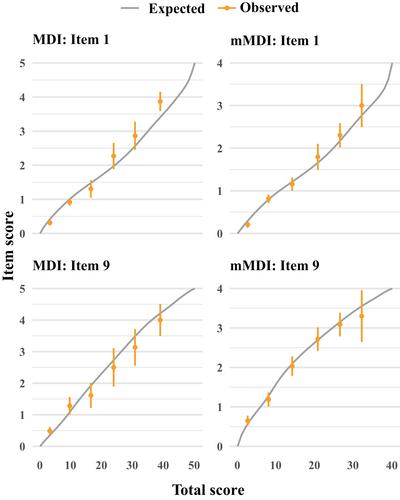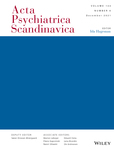The Major Depression Inventory (MDI) is a patient-reported outcome measure used by general practitioners to assist with diagnosing and evaluation of the severity of a patient's depression. However, recent studies have questioned the structural validity of the MDI.
We proposed a modified version (mMDI) of the MDI with fewer response categories and four rephrased items and aimed to compare the psychometric properties of the changes in a joint cohort of patients from general practice and mental health associations.
We used Rasch analysis, confirmatory factor analysis, and the area under the receiver operating curve (AUROC) to assess the validity and reliability of the two versions. Equipercentile linking was used to compute cut-off points for the mMDI.
For both versions, local dependence was found between the three item pairs (loss of interest, lack of energy), (lack of self-confidence, feelings of guilt), and (concentration problems, feeling restless/slowed down). The mMDI displayed lower measurement error in the upper end of the scale and better item level fit for three of the four reformulated items compared to the MDI. For the MDI, 5.3% of the respondents gave improbable responses; the corresponding number was 3.4% for the mMDI. The mMDI displayed better fit to a one-factor model compared to the MDI. When comparing the correlation of the scales with the WHO-5 instrument, the corresponding AUROC estimates for the mMDI and MDI were found to be 0.93 (0.92; 0.96) and 0.91 (0.87; 0.94), respectively. The cut-off points for mild, moderate, and severe depression in the mMDI were found to be 17, 20, and 23, respectively.
The proposed changes of the MDI are psychometrically sound upgrades of the original.



